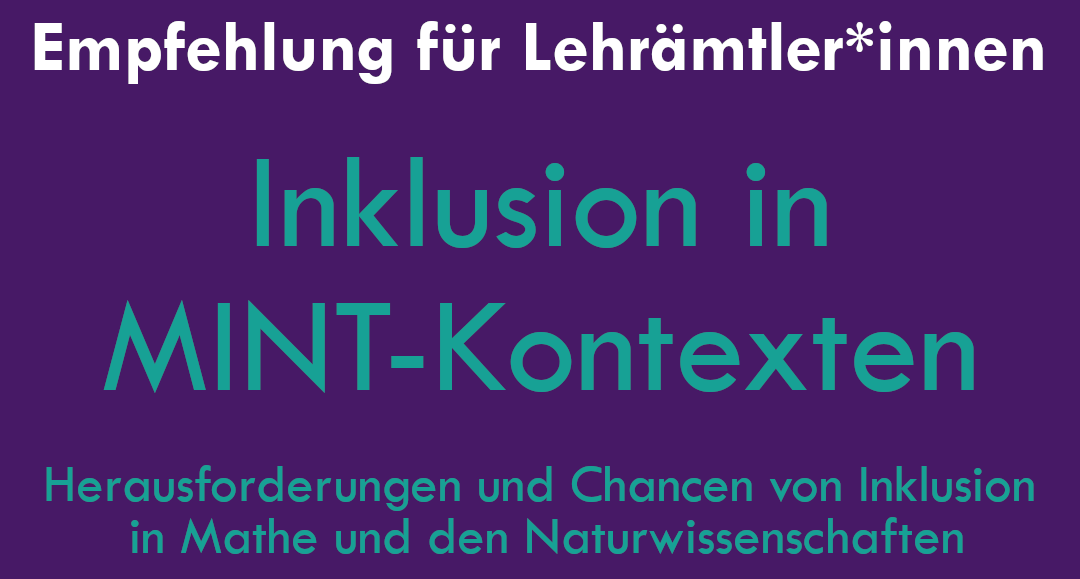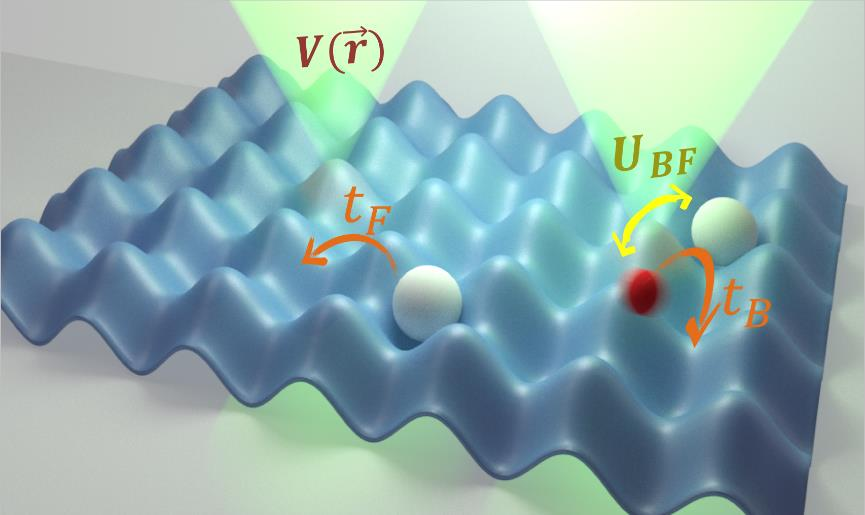Inklusion in MINT-Kontexten

3 CPs in der MathNat-Grundlegung bzw. im Studium Integrale
Die Idee dieser Veranstaltung ist, Inklusion und Heterogenität mit MINT zu verknüpfen, unterschiedliche Ansätze miteinander in Beziehung zu setzen, Herausforderungen und Chancen zu diskutieren und Anregungen für den zukünftigen inklusiven MINT-Unterricht zu bieten. Das Seminar wird interdisziplinär stattfinden und Themen von dem allgemeinen Inklusionsbegriff bis hin zu den Anforderungen für die Unterrichtsplanung thematisieren. Insbesondere werden spezifische Herausforderungen und Chancen von Inklusion in Mathe und den Naturwissenschaften thematisiert. Zur Gewährleistung möglichst vielfältiger Perspektiven werden Kolleg*innen aus den MINT-Fachdidaktiken und -wissenschaften sowie der Sonderpädagogik, Bildungswissenschaften sowie der Schulpraxis eingebunden, um spezifische Herausforderungen und Chancen von Inklusion in Mathe und den Naturwissenschaften zu thematisieren. Ziel ist es dabei auch Verbindungen zwischen den Fächern herzustellen und Studierenden zu ermöglichen sich interdisziplinär zu vernetzen.

